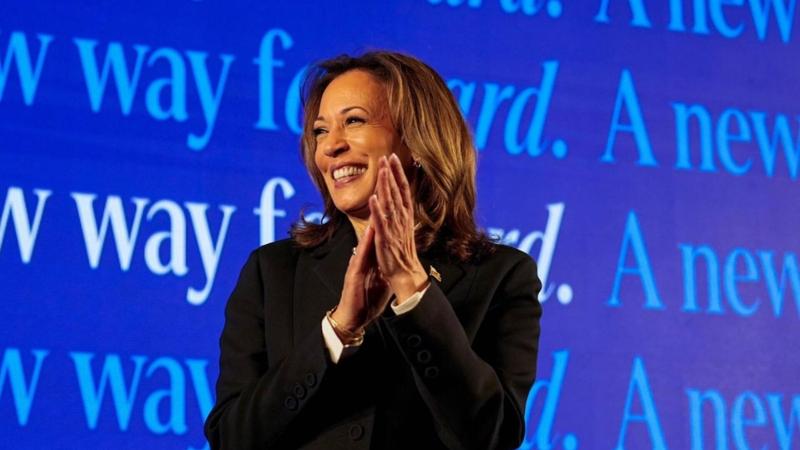Vice President Kamala Harris said she plans to pay for the promises she’s made on the campaign trail by requiring the wealthy and large corporations to pay more in taxes.
However, she’ll face obstacles getting her plans in their existing form through Congress and the taxes she has proposed won’t cover the costs of her spending promises, according to an analysis from the nonprofit Committee for A Responsible Federal Budget, other budget watchdogs and a recent report from the credit-rating agency Moody’s.
Harris has proposed, among other things, raising the federal minimum wage; expanding the Child Tax Credit to $3,600 a child 5 years and younger and to $3,000 a child older than 5, from the existing $2,000; expanding the Earned Income Tax Credit for individuals and couples in lower-income jobs who aren’t raising a child in their home; increasing premium subsidies for health insurance under The Affordable Care Act; and providing an average of $25,000 in down payment assistance to qualified first-time homebuyers.
Harris’ revenue plan would only offset some of her proposed spending. Harris would add $3.5 trillion to the projected debt through fiscal year 2035 under the CFRB’s central estimate, as a result of $7.25 trillion of deficit-increasing measures, $4.25 trillion of deficit-reducing measures, and $500 billion of interest costs.
That’s if the vice president’s campaign proposals turn into legislation adopted by what could be a divided Congress. Moody’s expects the status quo to remain in place: “We anticipate that the U.S. government will remain divided, preventing sweeping fiscal reforms by the new administration. As a result, fiscal policy proposals by both candidates will likely require intense bipartisan negotiations and compromise.”
Harris told “60 Minutes” that taxes on the wealthy would pay for her spending plans.
“I’m going to make sure that the richest among us, who can afford it, pay their fair share in taxes,” she said during the interview that aired Monday. “It is not right that teachers and nurses and firefighters are paying a higher tax rate than billionaires and the corporations.”
When pressed to address those issues in the “real world,” Harris said there are “plenty of leaders in Congress who understand and know that the Trump tax cuts blew up our federal deficit.’
Congress has approved deficit spending for more than two decades, which led to larger budget deficits and accumulating debt. Since 2001, Congress has run a deficit each year, according to the U.S. Treasury Department.
Moody’s doesn’t expect much to change: “Continued political polarization within Congress raises the risk that successive governments will not be able to agree on a plan to slow the deterioration in U.S. federal fiscal outcomes, such as widening fiscal deficits, increasing interest payments and higher debt levels. For a reserve currency country like the U.S., debt affordability – more than debt as a share of GDP – determines our assessment of sovereign fiscal strength,” the credit-rating agency noted in a recent report. “U.S. fiscal strength will materially weaken in the absence of meaningful policy steps to reduce the fiscal deficit, rein in new borrowing to fund those deficits and slow the rise in interest expense that consumes an increasingly large share of government revenues.”
Moody’s further warned that “these debt dynamics would be increasingly unsustainable and inconsistent with an Aaa rating if no policy actions are taken to course correct.”
A lower credit rating would increase the cost of federal borrowing, which has already outpaced federal spending on Medicare and the military. Spending on net interest hit $514 billion in the first seven months of fiscal year 2024. That’s more than spending on both national defense ($498 billion) and Medicare ($465 billion). Medicare is the federal health insurance program for those 65 and older and younger people with disabilities.
Former President Donald Trump’s plans would add $7.5 trillion to the projected debt through FY 2035 under the CFRB’s central estimate, as a result of $10.20 trillion of deficit-increasing measures, $3.70 trillion of deficit-reducing measures, and $1.00 trillion of interest costs. Trump has largely proposed extending the 2017 Tax Cuts and Jobs Act and relying on tariffs to cover higher costs for his other campaign promises, including no taxes on tips, overtime wages or Social Security Benefits. Budget watchdogs are uncertain if, and to what extent, Trump’s plan might work.
The CFRB board asked both Trump and Harris to release their detailed plan to address the national debt before Election Day on Nov. 5.






